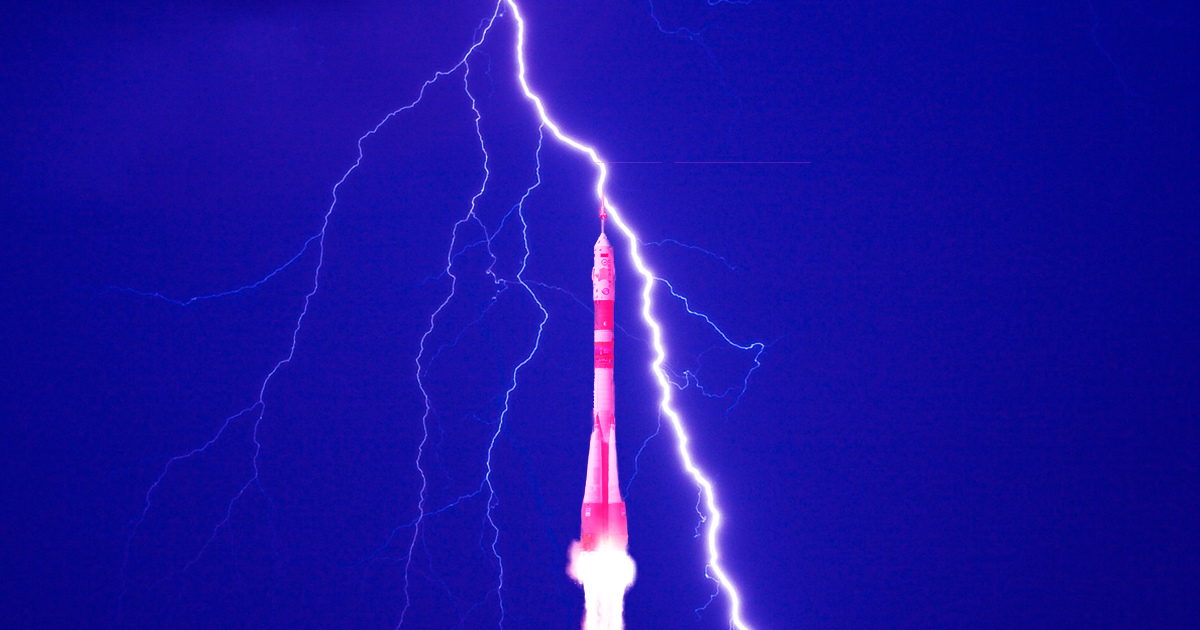Okay, this is pretty epic.
Ride the Lightning
In Russia, a little lightning isn't enough to stop a rocket from completing its mission.
On Monday, Russian space agency Roscosmos launched a Soyuz 2-1b rocket from the Plesetsk Cosmodrome, a spaceport about 800 kilometers (497 miles) north of Moscow. About 10 seconds later, a massive bolt of lightning struck the spacecraft — a remarkable sight captured on video by numerous spectators.
Mission: Still Possible
The lightning strike might look dramatic, but it had no impact on the mission — the rocket spent the next 3.5 hours making its way into low-Earth orbit, where it delivered a Glonass-M navigation satellite into orbit.
"Lightning is not an obstacle to you," tweeted Roscosmos director Dmitry Rogozin alongside a video of the lightning strike.
Rocket Science
This isn't the first time lightning has struck an ascending rocket — famously, lightning struck one of NASA's Saturn V rockets during the 1969 launch of the crewed Apollo 12 mission not once, but twice.
Thankfully, the people designing these rockets understand that sending a massive hunk of metal into the sky might attract lightning, and so they build the craft accordingly.
"The weather is not an obstacle and we [the Space Force of Russia’s Aerospace Forces] are all-weather troops," Plesetsk Cosmodrome chief Nikolai Nestechuk told Russian news agency TASS. "This is yet another proof that lightning cannot damage our aerospace weapons."
READ MORE: Wild Footage Shows Lightning Strike Russia's Soyuz Rocket Mid-Launch [Science Alert]
More on Roscosmos: Expert: SpaceX Just Made Russia’s Space Program “Null and Void”
Share This Article
